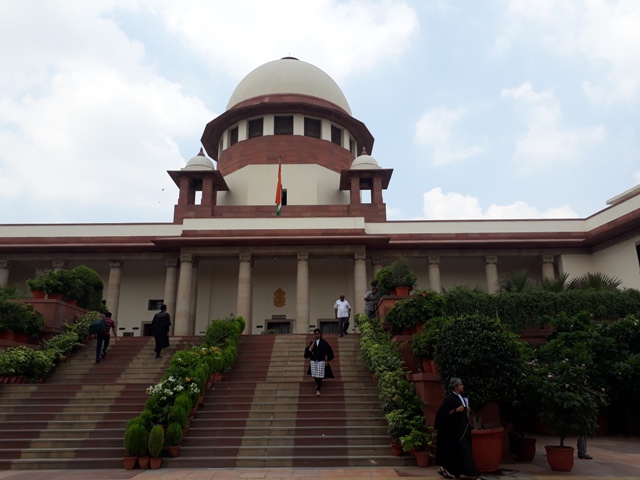Delhi vs Centre: SC to set up bench to hear plea relating to split verdict on control of services
On February 14, 2019, a two judge-bench of Justices A K Sikri and Ashok Bhushan, both retired since, recommended to the chief justice of India that a three judge bench be set up to finally decide the issue of control of services in the national capital in view of its split verdict.Justice Bhushan had ruled the Delhi government has no power at all over administrative services.

- Country:
- India
The Supreme Court on Tuesday said it would set up a three-judge bench to hear after the Diwali vacation the AAP government’s plea on the contentious issue of who should control administrative services in Delhi.
The plea arises out of a 2019 split verdict. On February 14, 2019, a two judge-bench of Justices A K Sikri and Ashok Bhushan, both retired since recommended to the chief justice of India that a three-judge bench be set up to finally decide the issue of control of services in the national capital given its split verdict.
Justice Bhushan had ruled the Delhi government has no power at all over administrative services. Justice Sikri, however, made a distinction. He said the transfer or posting of officers in top echelons of the bureaucracy (joint director and above) can only be done by the Central government and the view of the lieutenant governor would prevail in case of a difference of opinion for matters relating to other bureaucrats.
“We have to constitute a bench after Dussehra vacation. The plea would be listed after Diwali break,” a bench of Chief Justice N V Ramana and Justices Surya Kant and Hima Kohli told senior advocate Rahul Mehra who mentioned the Delhi government's plea for urgent listing and hearing.
Following a five-judge Constitution bench judgment, police, land, and public order were to be under the control of the Centre, and the rest of the subjects, including the services, should remain under the Delhi government, Mehra said.
“It is the matter about the issue of services which find mention in Entry 41 of List II of the Constitution. The two-judge bench expressed divergent views and the matter was before a three-judge judge bench. Since the entire administrative control vests currently with the Centre, it is an important issue and impedes on the ability of Delhi government to govern and implement its policy,” the counsel for the Delhi government added.
Earlier, the top court, which was hearing pleas on six matters about a long-running conflict between the Centre and the Delhi government, had given a unanimous order on the remaining five issues except for the control over services.
Both judges had agreed that the lieutenant governor will have control over the Anti-Corruption Bureau, as already notified by the Centre, and the power to appoint inquiry commissions would also rest with the Central government.
On the other hand, the elected Delhi government will have the right to appoint public prosecutors, to decide land revenue matters, and also to appoint or deal with the electricity commission or board, the bench had ruled.
It had unanimously upheld the Centre's notification that its employees cannot be probed in corruption cases by the ACB, which is part of the Delhi government but controlled by the L-G.
After the difference of opinion on the issue of control of services, the bench had dictated the order and said the matter needs to be referred to a larger bench, and views expressed by both the judges should be placed before the CJI for constitution of an appropriate bench.
On July 4, 2018, the five-judge bench had laid down broad parameters for governance of the national capital, which has witnessed a power struggle between the Centre and the Delhi government since the AAP came to power in 2014.
In the landmark verdict, it unanimously held that Delhi cannot be accorded the status of a state. It clipped the powers of the L-G, saying he has no ''independent decision-making power'' and has to act on the aid and advice of the elected government.
The Delhi government has been at loggerheads with the present L-G and his predecessor.
(This story has not been edited by Devdiscourse staff and is auto-generated from a syndicated feed.)










